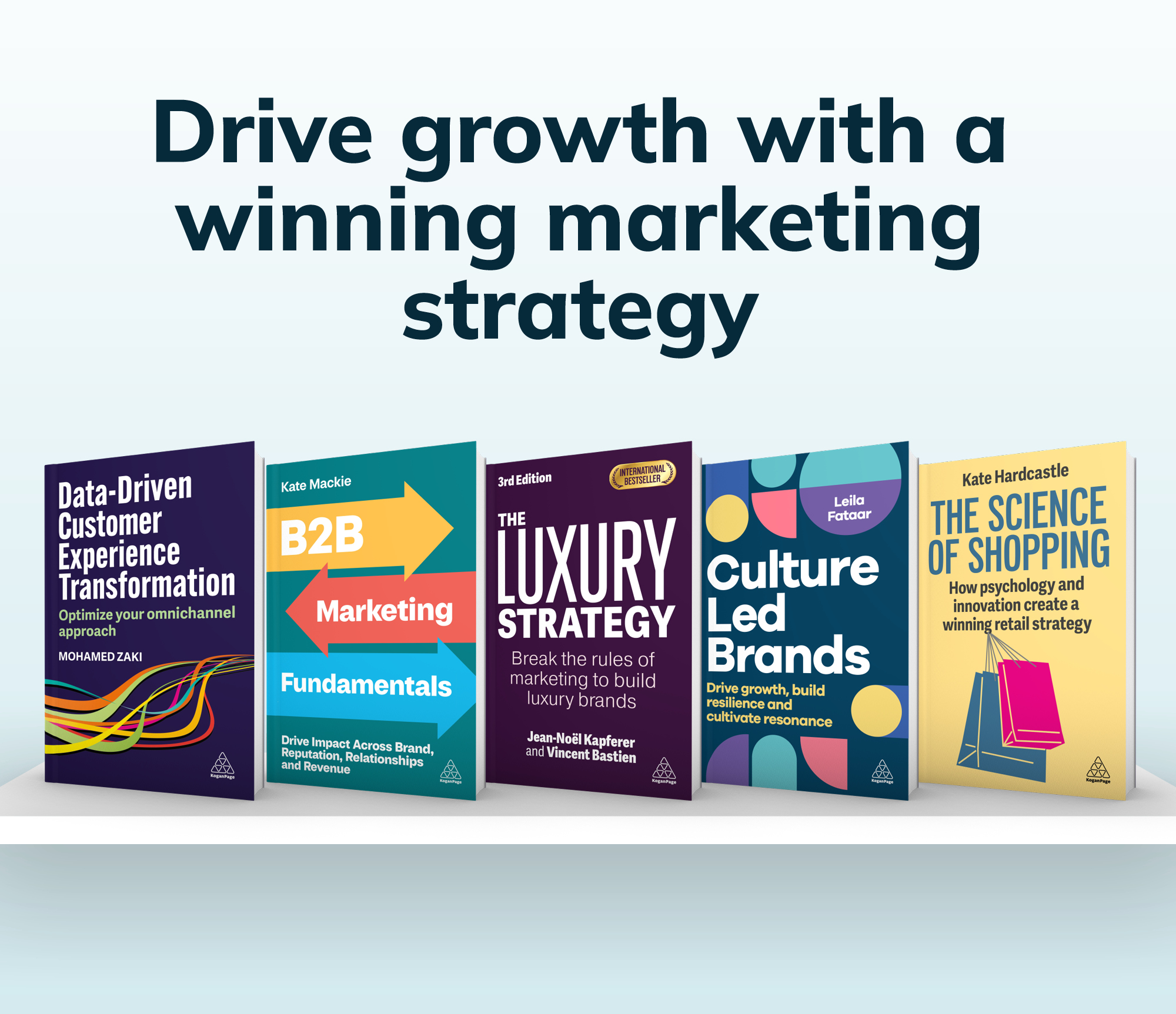Get a FREE ebook with your print copy when you select the "bundle" option. T&Cs apply.
Marketing & Sales Books
Latest books in Marketing & Sales
Trending books
Latest insights in Marketing & Sales
Marketing & Sales, Branding, Marketing Analytics, Customer Experience Inconsistent customer experiences can quietly undermine your brand, making even great products and service teams ineffective and costing more than you might think. Here's why it matters.
Retail, Customer Experience Explore how to grow your e-commerce marketing strategy through a collaborative approach to achieve long-term success.
Sustainability, Responsible Business Learn how the marketing industry can become a driver of positive change with Alexis Eyre, author of ‘Sustainable Marketing’.


